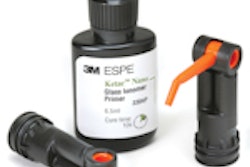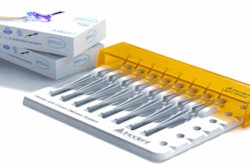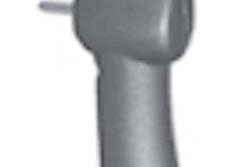Dear Restoratives Insider,
Are your restorations curing all the way through? And are you cooking your patients' pulp in the process? If you know the answers to these questions, you're doing better than many of your colleagues, according to researchers at Dalhousie University, who believe that many dental professionals use poor curing light technique. To read about the solution they've invented, click here for our latest Insider Exclusive.
In other Restoratives Community news, one of the biggest debates among dentists today is about whether to use articaine or lidocaine. Studies so far have given a slight edge to articaine for infiltrations, but a new study -- among the largest so far -- found surprisingly little difference between the two. Learn more here.
Of course, you can avoid all the most painful steps in dentistry if you can arrest the progress of a lesion. That's why some dentists swear by silver diamine fluoride. And new techniques may offer a way around its unsightly drawback. Read more.
Another factor in patient comfort -- and practitioner convenience -- is the handpiece. What if you could use a handpiece once, then toss it in the garbage? That's the proposal of a Michigan company preparing to launch what it claims is the only FDA-cleared disposable handpiece. Click here to find out more.
Speaking of convenience, new products on the market combine etchant, primer, adhesive, and restoration all in one step. Learn about independent evaluations of these self-adhesive composites here.
Making restorations last once they're in place is the preoccupation of Franklin Tay, B.D.Sc., Ph.D., of the Medical College of Georgia. According to his research, ethanol seems to work in the lab; click here to find out whether you might use it in your office.
As for indirect restorations, an increasing number are starting with digital impressions. Sales of intraoral scanners shot up in the first quarter of this year, suggesting that more dentists are not only designing but milling what they place on their patients' teeth. What's driving this growth? Read more.
Where you get your information about such techniques may make a difference in how aggressively you treat dental diseases. That's the finding of another research group, this time from the University of Texas at San Antonio. Your gender matters, too, as you'll read here.
As always, you can get lots of other news about restorative materials and techniques by visiting our Restoratives Community regularly.



















